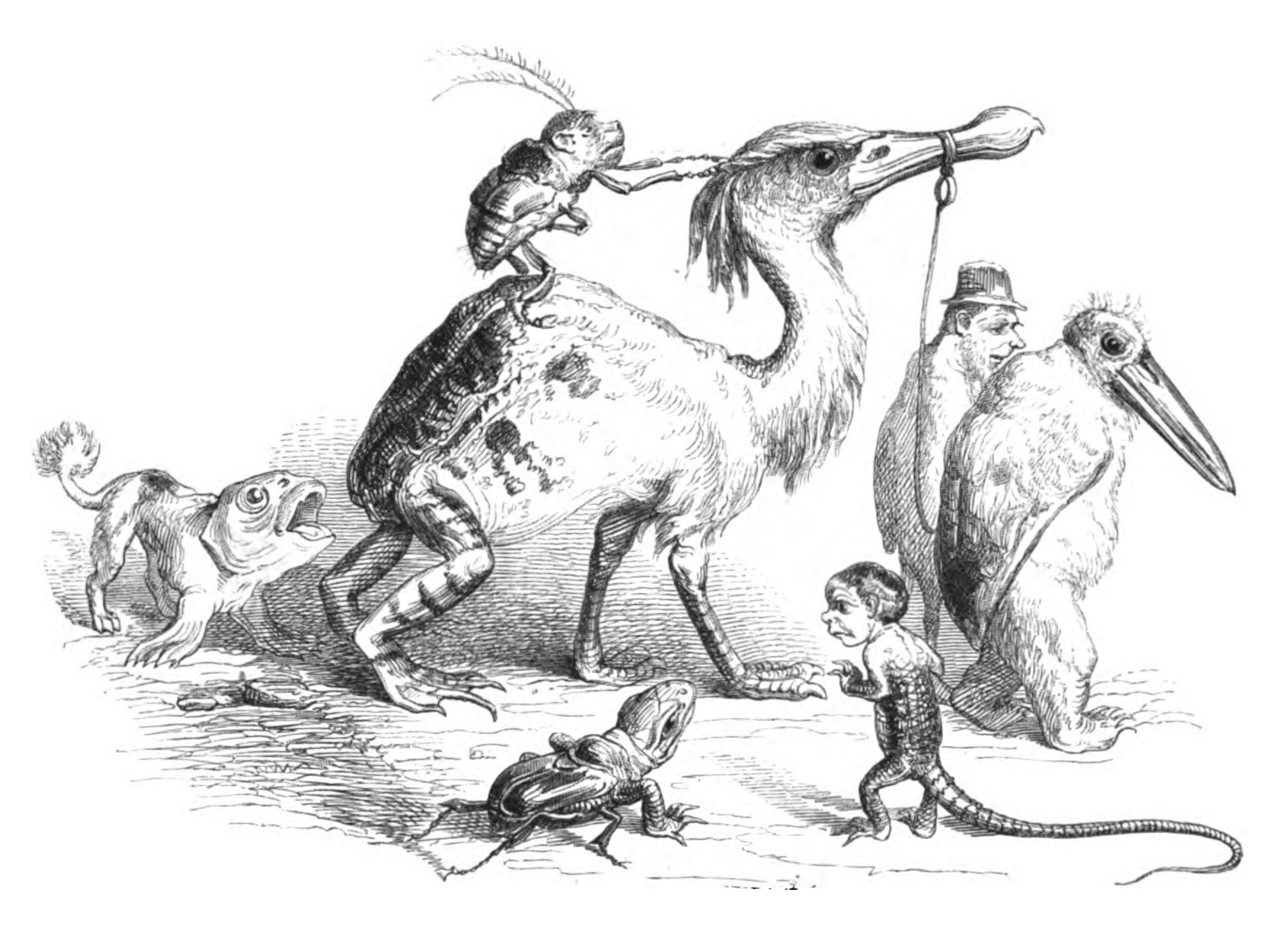J. J. Grandville, Un autre monde, 1844
The nineteenth century was a critical period in the history of science. A number of visionaries – from Lamarck to Haeckel, not to mention Darwin and Wallace – published and popularized the conceptual breakthroughs that led the way to modern evolutionary biology. I am drawn to the intersection between the history of art and the history of science, and luckily for me, artists from the nineteenth century produced fascinating prints and designs that reflect scientific concepts. My undergraduate thesis centered on J.J. Grandville, a “Proto-Surrealist” political dissident who may or may not have been insane: my research shows that Grandville’s disturbing hybrid creatures, dismissed by his contemporaries as evidence of his madness, reflect the pre-Darwinian evolutionary theories of Lamarck and Geoffroy. My latest project is on insect diversity in Art Nouveau design – why did cicadas and grasshoppers suddenly become popular with the European avant-garde at the turn of the twentieth century?
IMAGE PERMISSIONS
By far the biggest frustration I’ve encountered as an art history student is the difficulty of getting image permissions for academic publication. Many collections charge high fees to use existing images of artworks that are already in the public domain. I maintain a list of museums that allow non-commercial reproduction of their images – I started it for my own use, but I hope that this may be helpful to others. If you know of additional museums that I should add (surely there are many), please send me an e-mail at ss3090@msstate.edu.
Museums that allow license-free, cost-free, non-commercial use of public-domain art:
- The Art Gallery of New South Wales
- Baltimore Museum of Art
- The Brooklyn Museum
- The Freer and Sackler Galleries and all other Smithsonian museums
- The J. Paul Getty Museum
- Los Angeles County Museum of Art
- The Metropolitan Museum of Art
- The National Gallery of Art
- The National Gallery of Victoria
- The Philadelphia Museum of Art
- The Phillips Collection
- Princeton University Art Museum
- Statens Museum for Kunst
- The Walters Art Museum
- Whitney Museum of American Art
- Yale University Art Gallery
